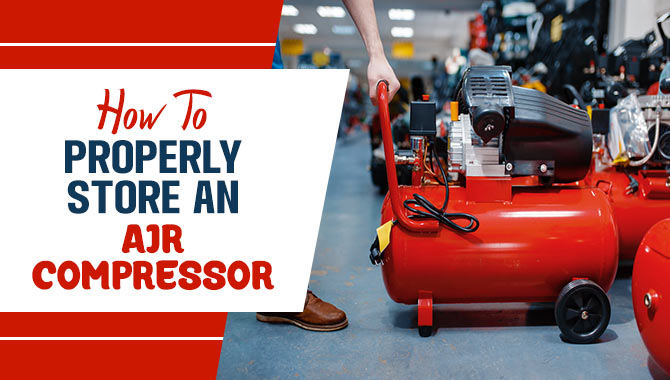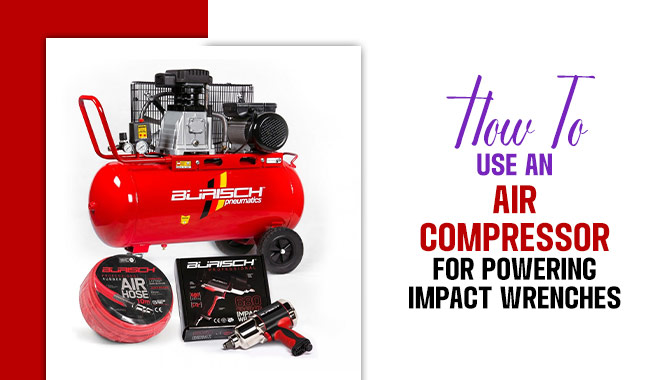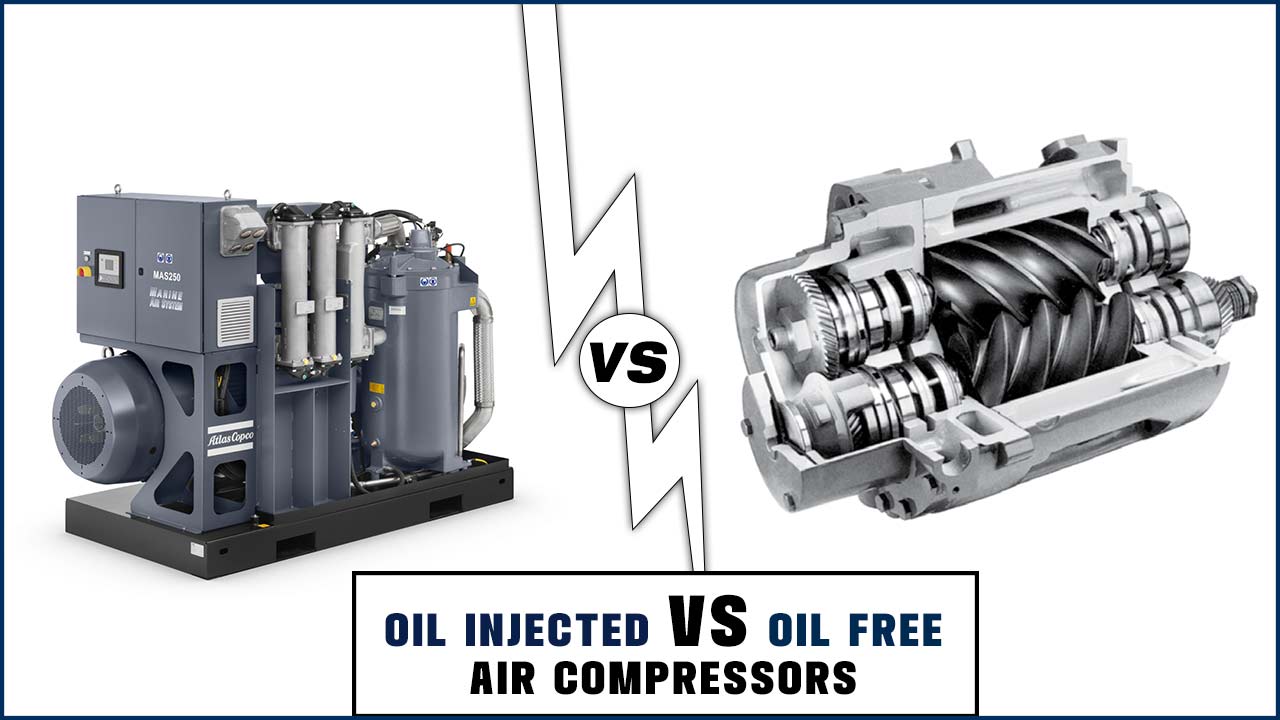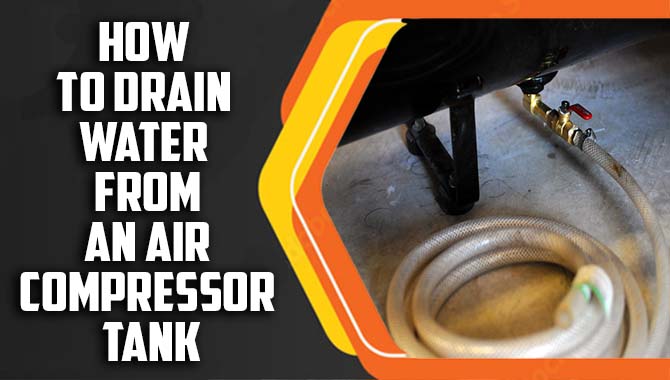The choice between an electric air compressor and a gas-powered air compressor can be a difficult one. Both types of compressors have their own advantages and disadvantages, making it important to consider your specific needs and the environment in which you’ll be using the compressor.
In this article, we’ll explore the differences between electric and gas-powered air compressors, looking at the pros and cons of each, so you can make an informed decision on which is right for you. With this knowledge, you’ll be able to make a well-informed decision and get the most out of your air compressor.
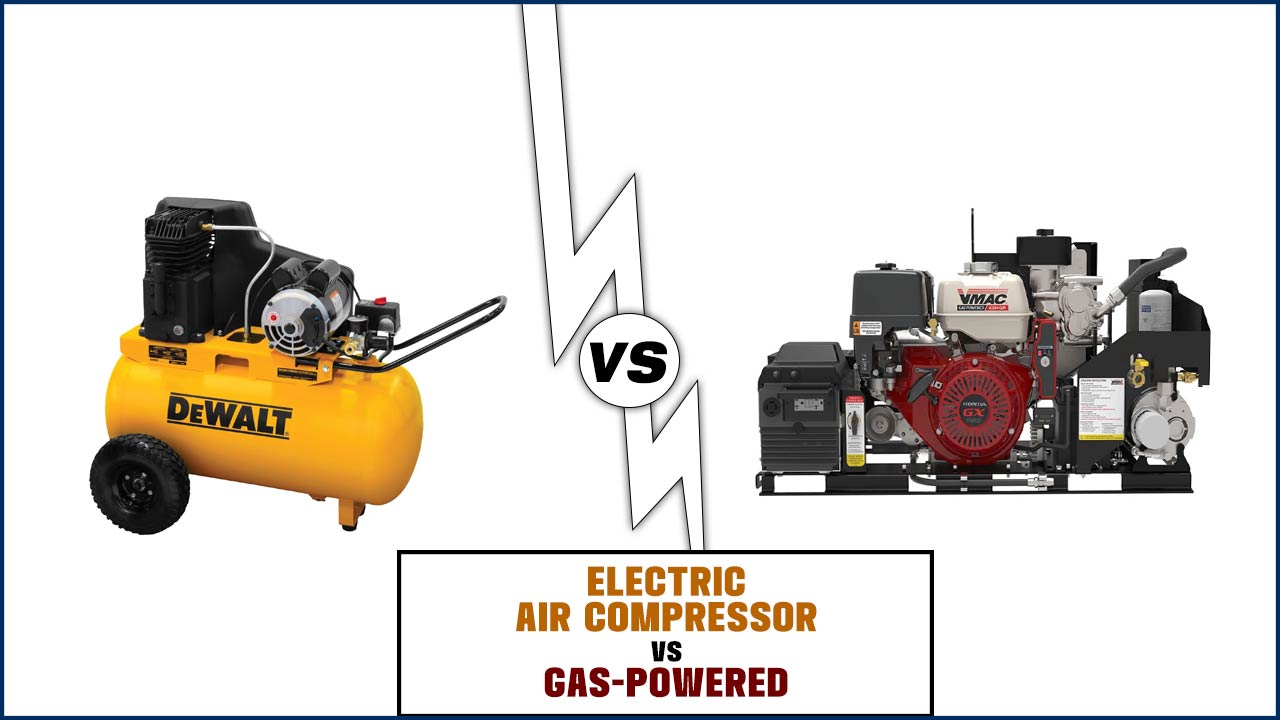
Electric Vs. Gas: Comparing Air Compressors
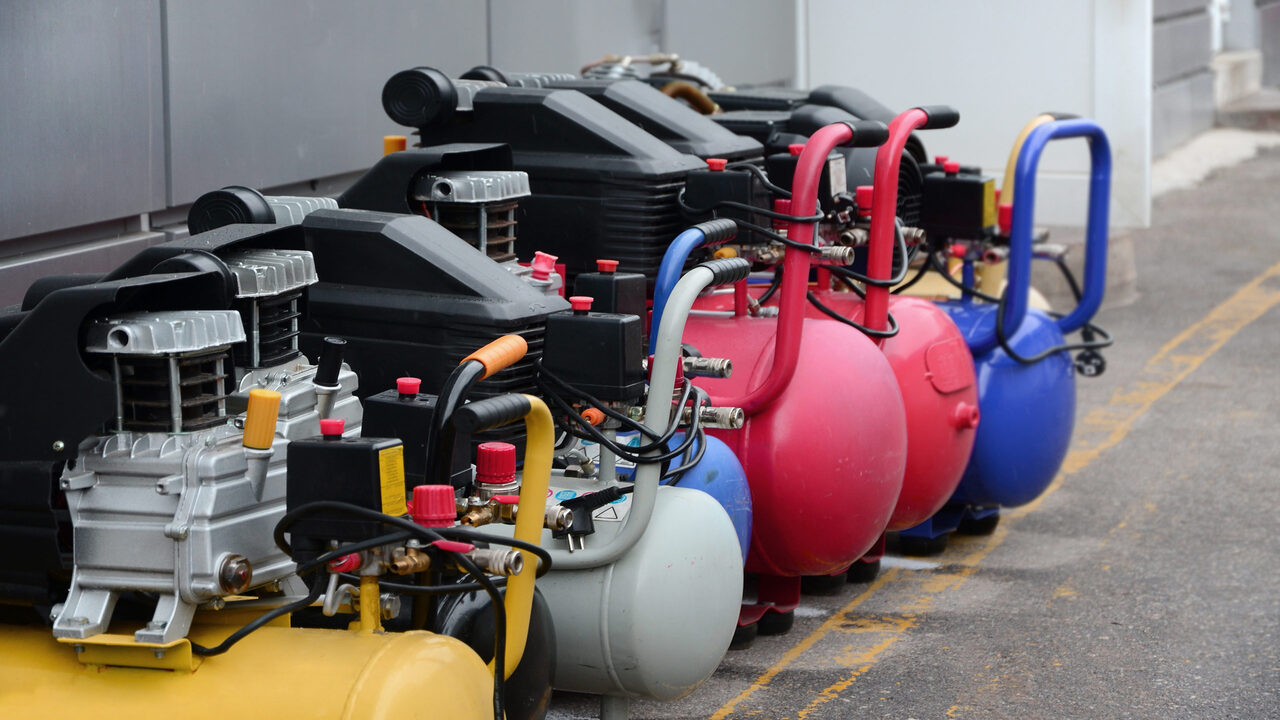
In this article, we will be discussing the differences between an Electric Air Compressor and a Gas-powered Air Compressor. We will be discussing the pros and cons of each type of compressor, and the best applications for each. We will also be looking at the cost of each type of compressor, and the maintenance required to keep them running.
We will be comparing the two types of compressors to help you make the best decision for your needs. So, let’s dive in and explore the differences between an Electric Air Compressor and a Gas-powered Air Compressor.
Cost
When it comes to cost, electric air compressors are often less expensive than gas-powered ones. Electric air compressors don’t require fuel or oil, so they are less expensive to maintain. Additionally, electric air compressors are usually smaller and more portable than gas-powered versions, so you don’t have to pay for the extra size and weight.
On the other hand, gas-powered air compressors usually have more power and higher pressures than electric versions. This can be beneficial when working on more difficult projects, but the extra power can come at a higher price tag. When shopping, be sure to factor in not only the purchase price but also the cost of any necessary maintenance or repairs.
Electric Air Compressor
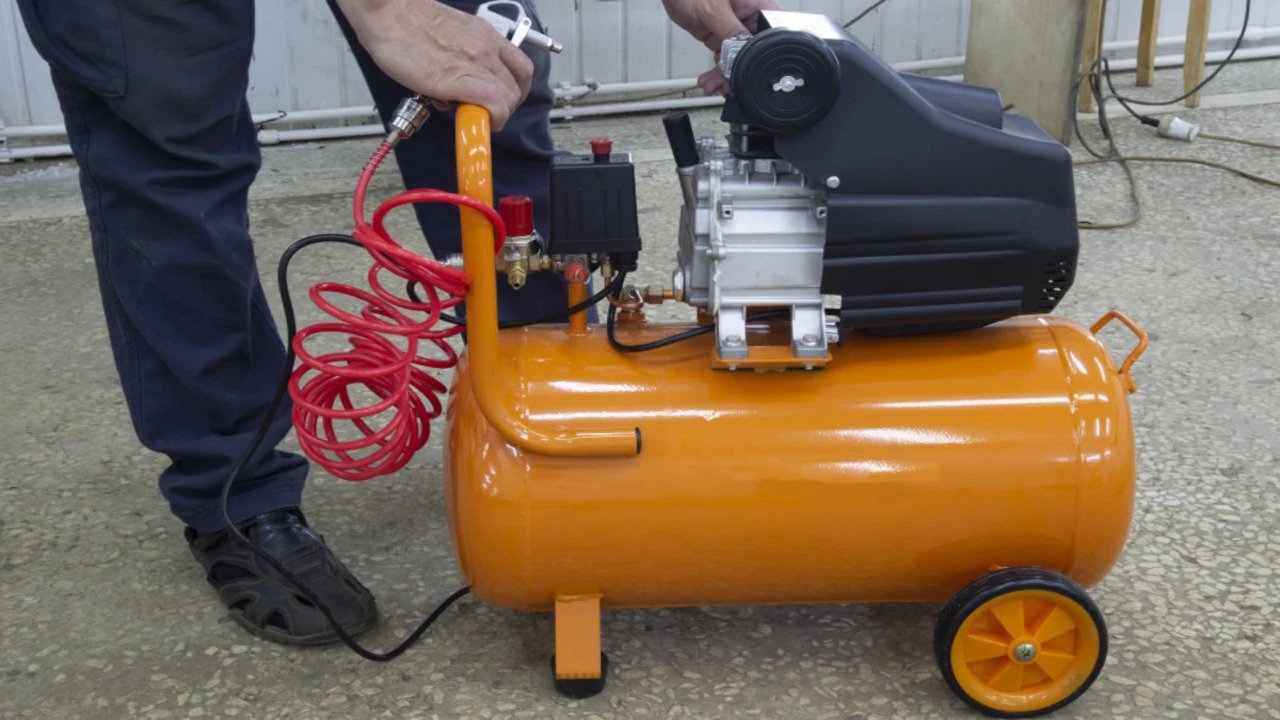
An electric air compressor is a portable, self-contained unit powered by electricity. When compared to gas-powered air compressors, electric air compressors are much more affordable and easier to maintain. They are also quieter, less bulky, and take up less space. Additionally, electric air compressors require no fuel or maintenance and are easy to use.
Electric air compressors are ideal for home use, as they can be used for a variety of tasks such as inflating tires, powering nail guns, and blowing up inflatables. Electric air compressors are also more energy-efficient than gas-powered compressors, making them an environmentally friendly option.
Gaspowered Air Compressor
A gas-powered air compressor is a powerful tool that can help complete projects quickly. It is an ideal choice for contractors and those who need a reliable source of air on a daily basis. Gas-powered air compressors are typically more powerful than electric air compressors and can offer higher CFM output. This makes them ideal for larger projects such as sandblasting, powering air tools, and inflating tires.
These air compressors are also more mobile than electric models and can be used on almost any job site. They are also more durable and require less maintenance over time. However, gas-powered air compressors are louder and emit fumes, which can be a nuisance to neighbors. Additionally, they require more upkeep and are more expensive to purchase than electric air compressors.
Maintenance
Maintenance is an important factor to consider when choosing between an electric and gas-powered air compressor. Electric compressors require regular cleaning and oil changes to ensure that they continue to work optimally. Gas-powered compressors, on the other hand, require more frequent maintenance and parts replacement.
They also need regular fuel stabilizer added to the fuel tank to prevent it from degrading over time. Additionally, they need to be regularly checked for air leaks, and if any are found, they should be sealed as soon as possible. Both types of compressors need to be regularly checked for any loose or worn parts, and any that need to be replaced should be done as soon as possible.
Performance
When it comes to performance, electric air compressors and gas-powered air compressors have their own advantages and disadvantages. Electric air compressors are generally more powerful and can deliver higher pressures than gas-powered air compressors. They also require less maintenance and are generally quieter than gas-powered compressors. However, they are dependent on an electrical outlet, which can limit their portability.
On the other hand, gas-powered air compressors are much more portable and can be used in places without electricity. They are also generally more durable than electric air compressors. However, they are typically louder, require more maintenance, and are not as powerful as electric air compressors. Ultimately, the choice between an electric air compressor and a gas-powered air compressor depends on the user’s specific needs.
Electric Air Compressor
An electric air compressor is a versatile tool that can be used for a variety of tasks. It is often the preferred choice for home use due to its portability and ease of use. An electric air compressor is powered by electricity and typically has a tank that holds the compressed air. This tank can range in size from a small 1-gallon tank to a large 80-gallon tank.
The electric air compressor can be used to power a variety of tools, such as nail guns, staplers, air ratchets, and blowguns. It can also be used to inflate tires, inflatable boats, and bike tires. Electric air compressors are relatively quiet, making them ideal for indoor use. Furthermore, they are usually less expensive than their gas-powered counterparts.
Gaspowered Air Compressor
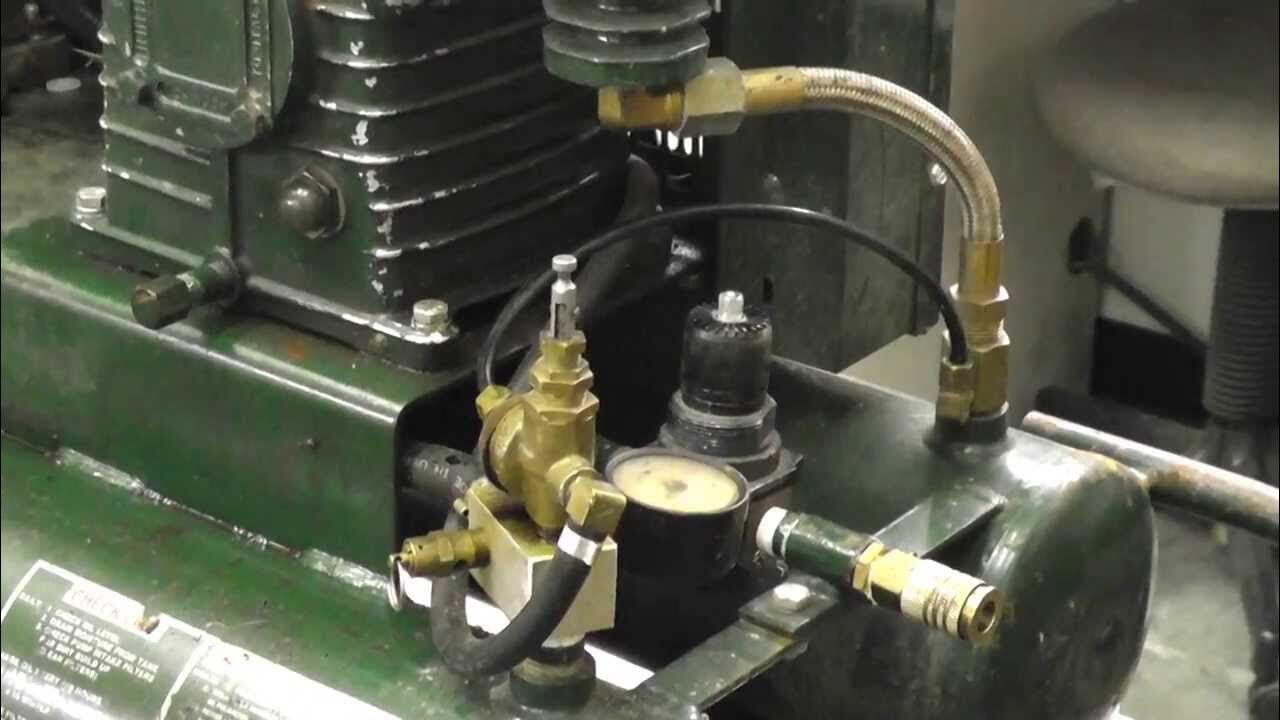
Gas-powered air compressors are an ideal choice for those needing a powerful, reliable, and portable air compressor. They are typically powered by gasoline, diesel, or propane and provide higher pressure than electric air compressors. These compressors are commonly used in applications such as construction, manufacturing, and automotive repair.
They are an excellent choice for jobs that require sustained high pressure over an extended period of time or that require frequent use in remote locations. These compressors are typically louder than electric models and require more frequent maintenance, but they are often preferred due to their higher pressure output.
Portability
When it comes to air compressors, portability is an important consideration. Electric air compressors are generally more portable than their gas-powered counterparts. This is because electric models are lighter and don’t require extra fuel to operate.
They are also more suitable for indoor use since they don’t produce exhaust fumes. On the other hand, gas-powered compressors are usually heavier and require fuel for operation. Plus, they produce exhaust fumes, which can make them unsuitable for indoor use. However, they can be used outdoors and may be the better option for those who need to move their air compressor frequently. Ultimately, the choice of electric or gas-powered air compressor depends on the user’s needs and preferences.
Safety
Safety is an important factor when deciding between an electric air compressor and a gas-powered air compressor. Electric air compressors are known to be much safer than gas-powered air compressors due to their lack of combustible fuel and no risk of sparks. Electric compressors are also more protected from the elements since they require no open flame or exhaust.
Gas-powered air compressors can be dangerous due to their open flame, combustible fuel, and exhaust. Gas-powered air compressors can also be challenging to maintain since they require frequent fuel and oil changes. Safety should be a priority when deciding between an electric and gas-powered air compressor. Electric air compressors are much safer and are also easier to maintain and use.
Electric Air Compressor
An electric air compressor is a device that uses electricity to power a motor, which in turn creates compressed air. This compressed air can be used for a variety of industrial and home applications, from powering pneumatic tools to inflating tires.
Electric compressors are usually smaller and lighter than gas-powered models, making them easier to transport. They are also quieter and easier to maintain, with fewer moving parts and no combustion process.
Additionally, electric compressors are generally more efficient than gas-powered models, requiring less power to operate and resulting in lower fuel costs. Lastly, electric air compressors don’t require oil changes like their gas counterparts, which helps to reduce both maintenance costs and environmental impact.
Gaspowered Air Compressor
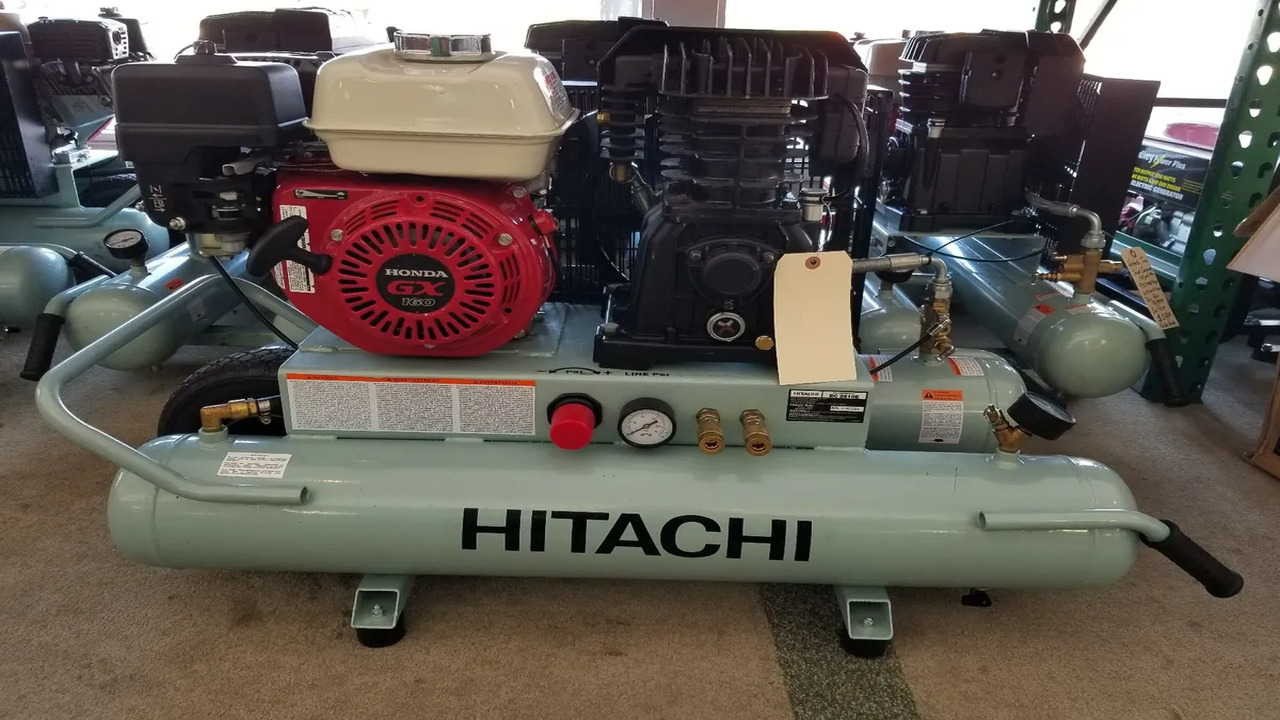
A gas-powered air compressor is a great choice for those looking for a reliable, powerful, and portable air compressor that can operate in remote locations. These units are typically more powerful than electric air compressors and are great for powering air tools and automotive applications.
Gas-powered air compressors are usually larger and heavier than electric air compressors, making them more difficult to transport. Additionally, they require more maintenance and burn more fuel than electric air compressors, which can be costly. However, their portability, power, and reliability make them a great choice for many applications.
Conclusion
A gas-powered air compressor is a great choice for those who need a lot of power and portability. They are powerful, easy to transport, and can be used in a variety of applications. On the other hand, electric air compressors are more affordable, quieter, and require less maintenance. Ultimately, the right choice for you depends on your budget, needs, and preferences.
FAQ’s
1.What Are The Advantages And Disadvantages Of An Electric Air Compressor Versus A Gas-Powered Air Compressor?
Ans: The advantages of an electric air compressor are that they are typically quieter, more reliable, and require less maintenance than gas-powered air compressors. Additionally, electric air compressors are more efficient since they don’t waste energy in the form of exhaust.
The main disadvantage of electric air compressors is that they are more expensive up-front and require electricity to run. Gas-powered air compressors are cheaper and require less setup, but they also produce more noise and require more maintenance.
2.Is There A Significant Difference In Cost Between An Electric And Gas-Powered Air Compressor?
Ans: Yes, there is a significant difference in cost between an electric and gas-powered air compressor. Electric air compressors are typically cheaper and easier to maintain than gas-powered ones, but gas-powered air compressors may be capable of producing more pressure and higher volumes of air. In addition, gas-powered air compressors tend to be more mobile and can be used in locations where electricity is not available.
3.What Kind Of Maintenance Is Required For An Electric Or Gas-Powered Air Compressor?
Ans: Generally, electric or gas-powered air compressors will require regular maintenance including checking the oil level, changing air filters, checking for loose wires and hoses, and replacing worn parts. It is also important to check for water in the air tank, as it can cause damage to the compressor if not addressed.
Additionally, it is important to regularly check the pressure of the machine to ensure it is running optimally. Finally, it is recommended to service the machine annually to ensure it is working at its best.
4.What Types Of Tasks Are Better Suited For A Gas-Powered Air Compressor Versus An Electric Air Compressor?
Ans: Gas-powered air compressors are better suited for jobs that require more power, such as powering a nail gun or framing gun. Electric air compressors are better suited for lighter tasks such as powering a paint sprayer or blowing up a bicycle tire.
Gas-powered air compressors are also more portable than electric air compressors, making them more suitable for outdoor work or tasks that require mobility. Electric air compressors require a power source and are generally used indoors.
5.Is An Electric Air Compressor More Suitable For Indoor Use Than A Gas-Powered Air Compressor?
Ans: Yes, an electric air compressor is more suitable for indoor use than a gas-powered air compressor. Electric air compressors are quieter and produce less fumes, making them more suitable for use indoors.
In addition, electric air compressors are more energy efficient and require less maintenance than gas-powered air compressors. Electric air compressors are also more cost-effective over the long run, as they require less investment in fuel and maintenance than gas-powered air compressors.


